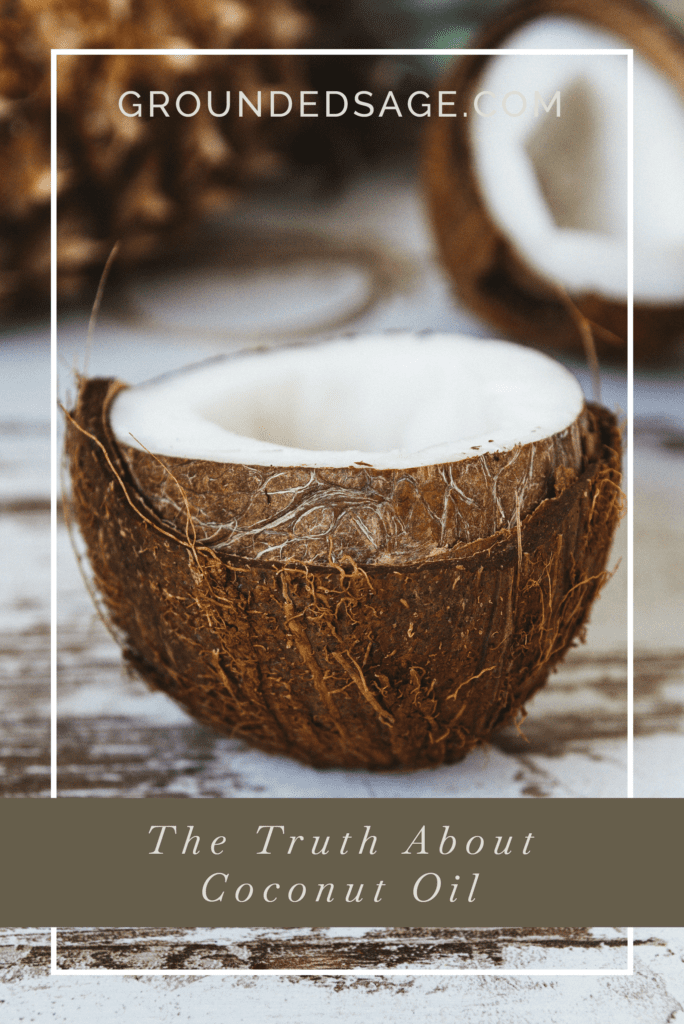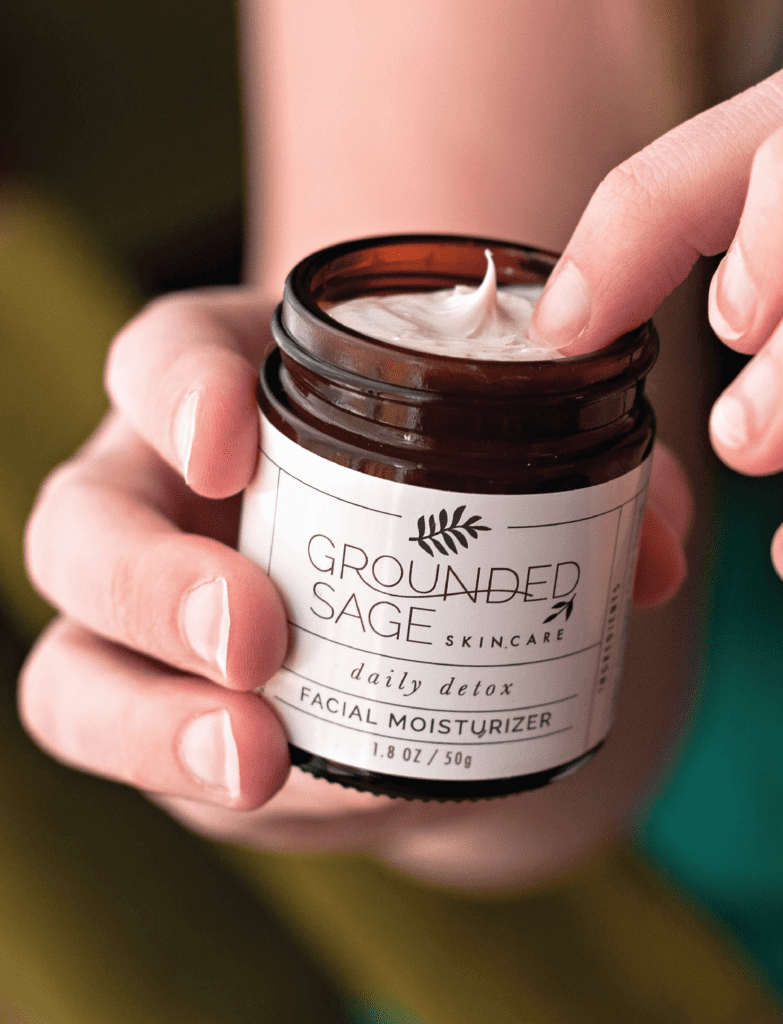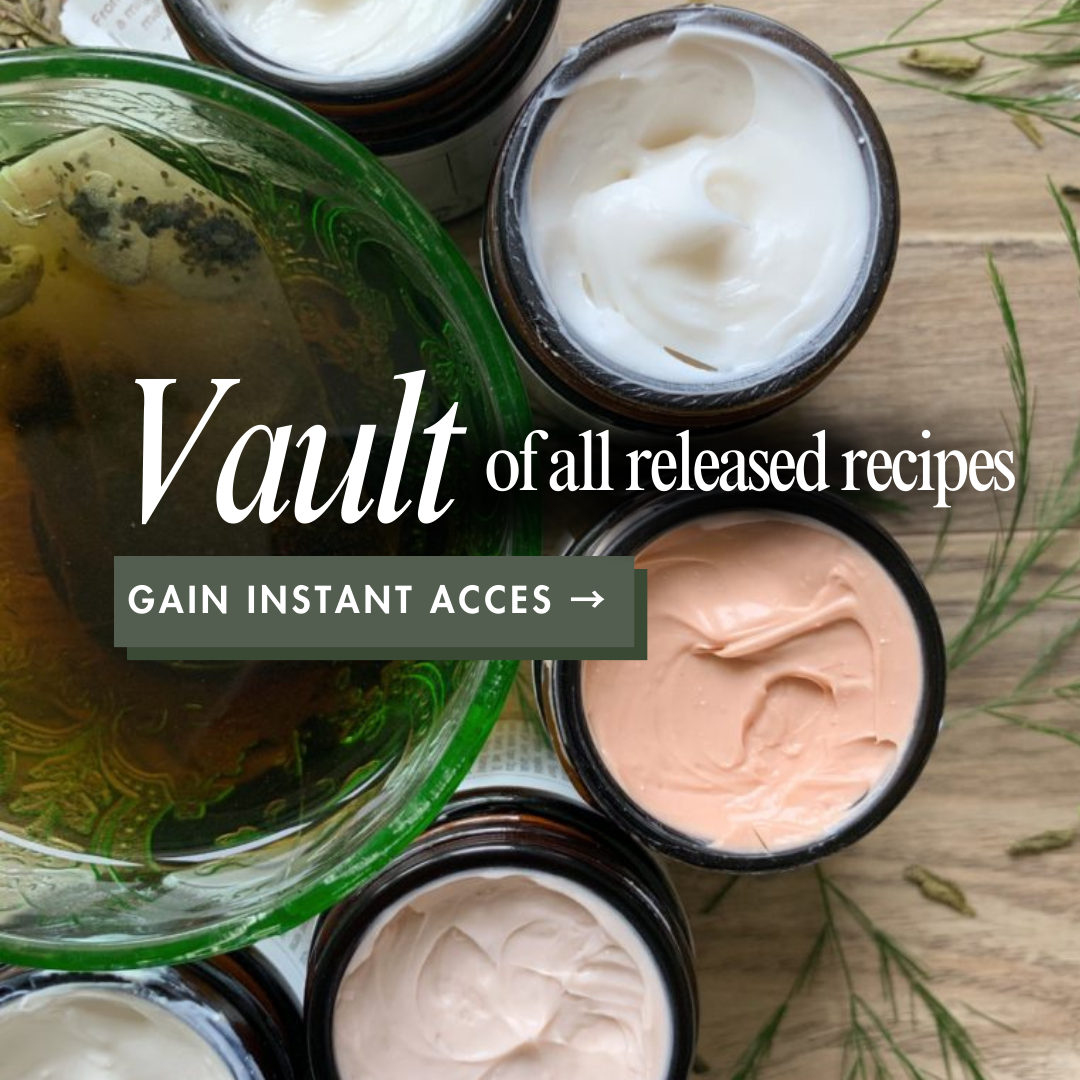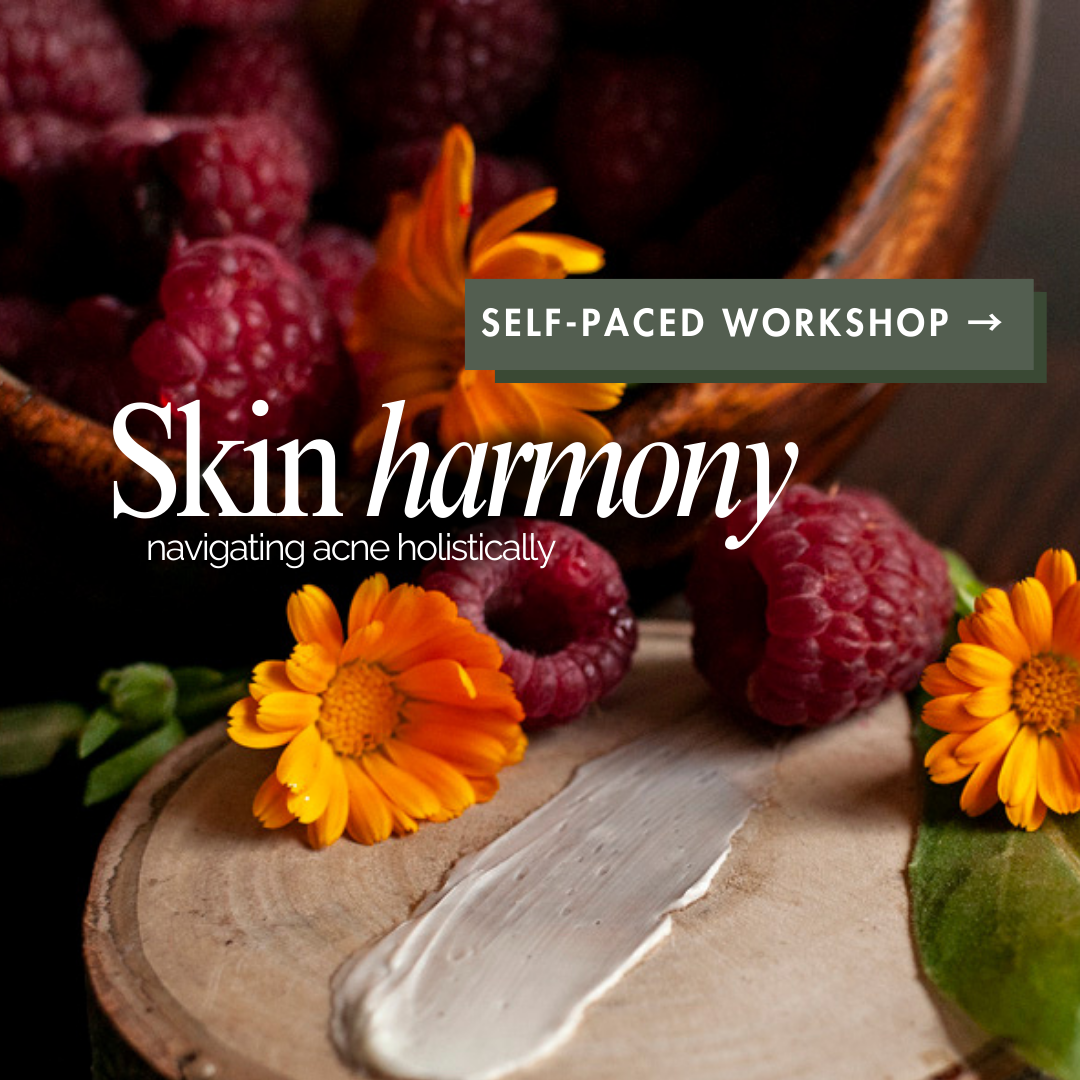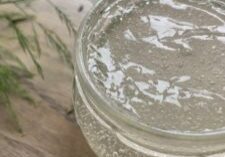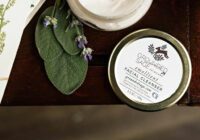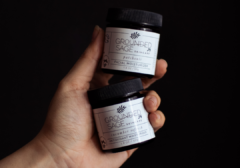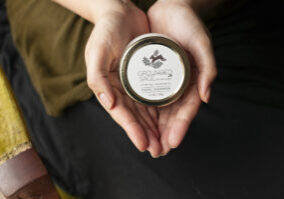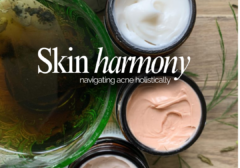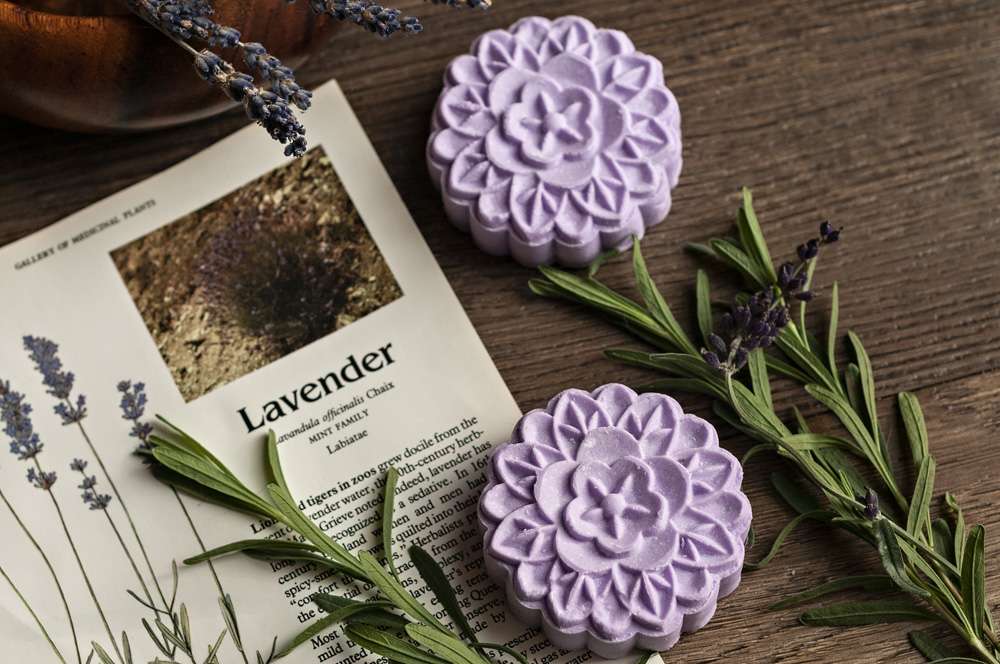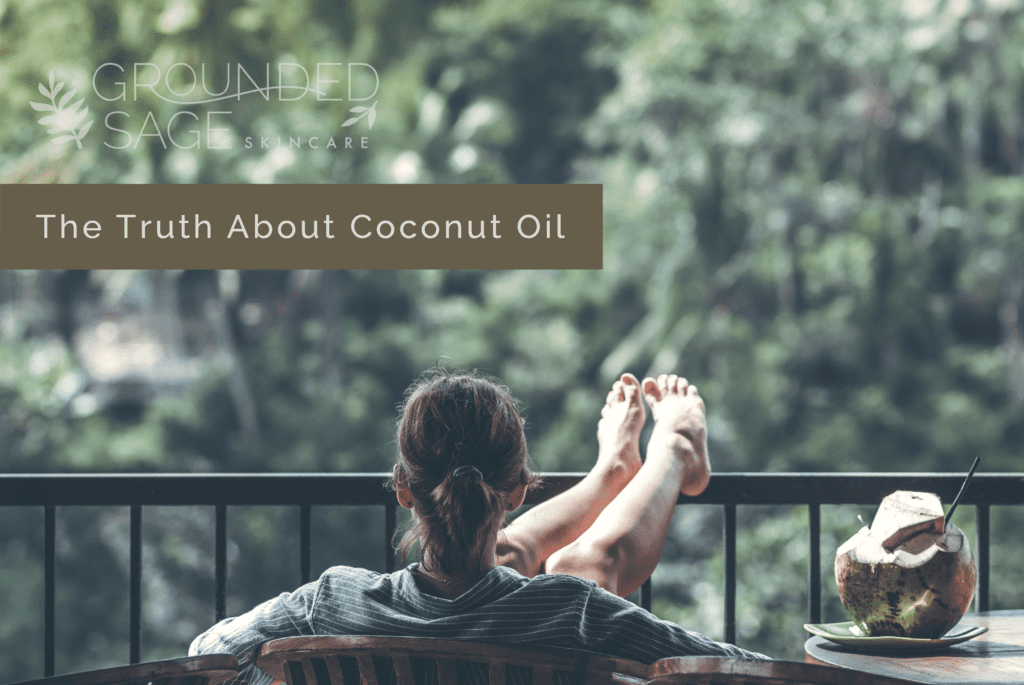
Trends come and go in the skincare world. Each is replaced by the “next best thing”, So often we forget that simple can be better. Mother Nature has provided us with an eco-system filled with green solutions to so many ailments and conditions.
Coconut Oil (one of Her many gifts) is a hot topic for naturalists and non-naturalists alike these days. Some will claim that they use it for EVERYTHING, while others try to tell you to avoid it altogether. The rest of the population? Well, thanks to mainstream media, are likely REALLY confused and currently on the fence about it.
Let’s try and clear some things up!

TRUE: Coconut oil contains natural antibacterial, antifungal and anti-inflammatory properties.
This is thanks to two fatty acids called Lauric Acid and Capric Acid which our bodies generate into Monolaurin and Monocaprin. They’re both champions when it comes to fighting internal and external germs and bacteria. Some recent studies have also shown that these fatty acids have the ability to help fight off super germs that genetically engineered antibiotics can’t even get a grip on. Naturally, this means that coconut oil also has the ability to help combat the bacteria associated with certain skin conditions like acne, eczema, and even dandruff. In certain types of bacteria based acne, coconut oil has even been found to be more beneficial than the commonly used benzoyl peroxide in drugstore manufactured acne treatments.

TRUE: Coconut oil is moisturizing!
Thanks to its lightweight and small molecular structure, coconut oil has the abilities to work its way deep into the lower layers of your skin, This is in contrast to most conventional moisturizers that can only do their job from the surface. Not to mention, when used as a moisturizer, coconut oil also helps to create a protective barrier for the skin that reduces water loss. This aids in the maintenance of your skin’s hydrations (water) levels, a crucial component in well-balanced skin.

TRUE: Coconut oil can help prevent signs of ageing!
Just like the rest of our body, as we age our skin doesn’t function at as “lively” of a level as it once did. Cellular turnover begins to slow down and we start to notice wrinkles and age spots set in. Coconut oil contains a number of antioxidants, the most notable in anti-ageing being Vitamin E. Not only does it reboot cell turnover, but it also protects from additional damage from free radicals. Thanks to the hydration barrier (as mentioned above), it also keeps skin looking plump and radiant. Oh- and while we’re on the topic, this also makes coconut oil a beneficial player in the healing of breakouts and wounds. When skin is able to regenerate at a faster rate, healing naturally occurs quicker.

FALSE: People with oily skin can’t use coconut oil.
This is probably one of the most misunderstood myths we hear all the time from people. Fact is, not all oils are created equally. The oil found in sebum is very different from the oil found in coconuts. Our sebum is comprised of a sticky texture, which on one hand helps to lubricate the pores, while on the other hand, when in overproduction, can also block them. Using a natural oil, like coconut oil, will not only help to break down these harden pockets of sebum, but also provide gentle exfoliation without stripping the skin.
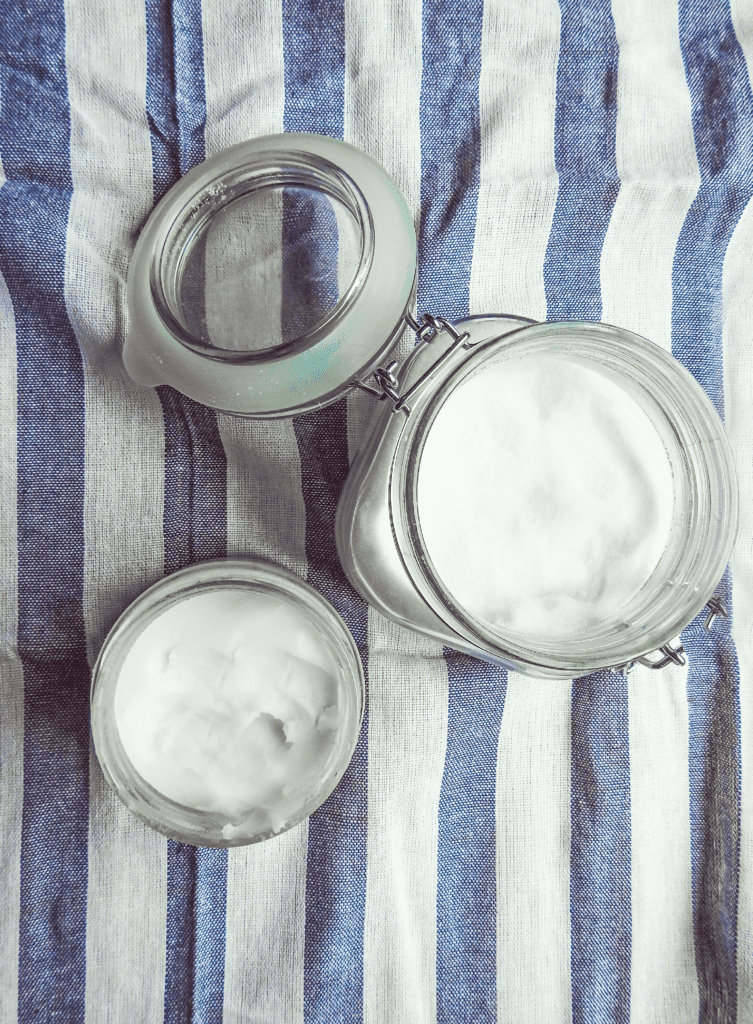

FALSE: All coconut oil and its derivatives are the same when it comes to having pore-clogging effects.
Nope, this couldn’t be further from the truth. Often, when someone narrows down their problem with breakouts, congestion, or blackheads due to coconut oil, they swear off ALL coconut oil and its derivatives. This mistake makes them miss out on all the benefits of other types of coconut oil and coconut-based ingredients!
- For example, while coconut oil …
… is extremely moisturizing
… has powerful antibacterial and antiviral properties (capric acid is retained)
… is packed with antioxidants and skin-loving vitamins (A, C, and E – which help the skin with collagen production – read: super important!)
… it can cause pore clogging issues for a few select skin types and situations; see the next point for these – but first STAY WITH ME because…
What you might NOT have been told is that fractionated coconut oil (sometimes referred to as liquid coconut oil (it’s not solid at room temperature but rather is a clear liquid)…
… blends easily with other oils
Have you read why that’s uber important for oily and/or acne-prone skin? No? Not worry lovely, Head right over HERE for an eye-opening read! Trust me, you’ll never look at oils the same way again!
… retains all the skin-loving benefits of extra virgin coconut oil
… isn’t pore clogging for ANY skin types!
Yes, you read that correctly. Once the lauric acid and other long-chain fatty acids have been removed from regular coconut oil, the only other thing that goes missing is the pore-clogging effect that some experience when using regular coconut oil!
In fact, fractured coconut oil (and other coconut-based ingredients), have a very low rating on the pore-clogging scale for ingredients (comedogenic ratings). We’ll go into depth in another post about what you need to know about comedogenic rates, but for now, rest easy that while many don’t even experience any pore-clogging effects from regular coconut oil (see below), the few that do have a next to zero chance of experiencing these effects with fractured coconut oil (pst, more on pore-clogging and congestion can be found here and here).
Another coconut-derived ingredient that we use in our formulations is Coconut fruit extract. Coconut extract doesn’t act or have the same fatty acid/lipid composition as coconut oil and is non-comedogenic for ALL skin types. While coconut oil comes from the meat of the nut, the extract is produced from the milk and is ultra-light and easily absorbed by the skin.

TRUE & FALSE – Coconut oil is good for all skin types.
Yes, whether you have dry, oily, acne-prone or ageing skin, coconut oil contains a multitude of benefits for your skin. The majority of people will not be bothered by the regular use of coconut oil topically. However, there is a small (and we mean VERY small) percentage of the population who’s skin doesn’t react in a healthy manner to coconut oil.
Here are the 2 situations in which you may need to cut coconut oil out of your skin care.
1. You’re noticing a new kind of breakout. These small in size, rash-like breakouts show up in clusters and are often found on cheeks, chin, and especially forehead. This type of person often suffers from a specific type of acne called comedogenic acne where their skin is VERY susceptible to congestion. Folks facing this kind of reaction to coconut oil generally have pores that are misshapen (almond-shaped), damaged, or naturally narrow.
BUT WAIT! This type of breakout doesn’t always mean this is the case. If you’re new to natural skin care, these kinds of bumps can also resemble what is referred to a detox breakout. Coconut oil also has strong detoxifying properties. When our skin is introduced to a detoxifying process, it often goes into overdrive to remove toxins which can lead to temporary breakouts. When this type of breakout occurs, it’s actually a good thing for our skin, and they will disappear with progress.
Want to learn more about detox breakouts? We’ve got just the blog for you right over HERE!
2. In the rarest of cases, you may be allergic to coconut oil. This is something to be aware of if you already know you have certain nut allergies, like hazelnuts. In this situation, you may notice a rash appear or even more serious symptoms that are common with an allergic reaction.

If you’ve been scared to try coconut oil as a part of your skin care, hopefully, we’ve been able to put your mind at ease. The benefits of coconut oil are just too good to ignore, and we’d hate to see you miss out on the power of this prized, earthly gift.
These benefits are also why 3 out of 4 of our facial moisturizers contain this natural oil and why so many of our Radiant Rebels have come to adore our moisturizing products.
Until next time- stay radiant!


Pin this article for later:
